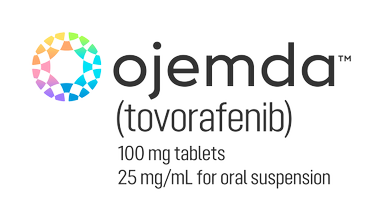Holmes, lives with pLGG
EveryDay Support From Day One™

We’re here to support you at each step of your child’s journey with OJEMDA
EveryDay Support From Day One offers guidance from dedicated Patient Navigators, financial assistance programs for eligible patients, insurance coverage support, treatment and administration education, and more.
Dedicated Patient Navigators
Our Patient Navigators will work directly with you to address your specific needs and coordinate with your child’s care team to simplify the process of getting OJEMDA.
Coverage support
We work with your child’s care team and health insurance plan to help obtain coverage.
Financial assistance
We provide financial assistance programs to help eligible families pay for OJEMDA, including the OJEMDA Copay Program,* which can lower out-of-pocket costs to as little as $0 per month, and a program that may provide free medicine if you don’t have health insurance or are underinsured for OJEMDA.†
*Restrictions and eligibility requirements apply. Not available for those with government insurance. Maximum benefit applies. Please see EveryDaySupport.com for full terms and conditions.
†Additional terms and conditions may apply.
Shipment & medication support
We work with our specialty pharmacy partners to ship OJEMDA directly to your home address and provide ongoing prescription and treatment support.
Here to help your child start and stay on therapy—join the program today

Get started at EveryDaySupport.com or call 855-DAY1-BIO (855-329-1246) Monday-Friday, 8 AM - 8 PM ET
By enrolling in EveryDay Support From Day One, you’ll receive resources and support throughout your child’s journey with OJEMDA. Get resources, answers to your questions, and assistance with the next steps that are right for you. EveryDay Support From Day One is available to you at no cost.
